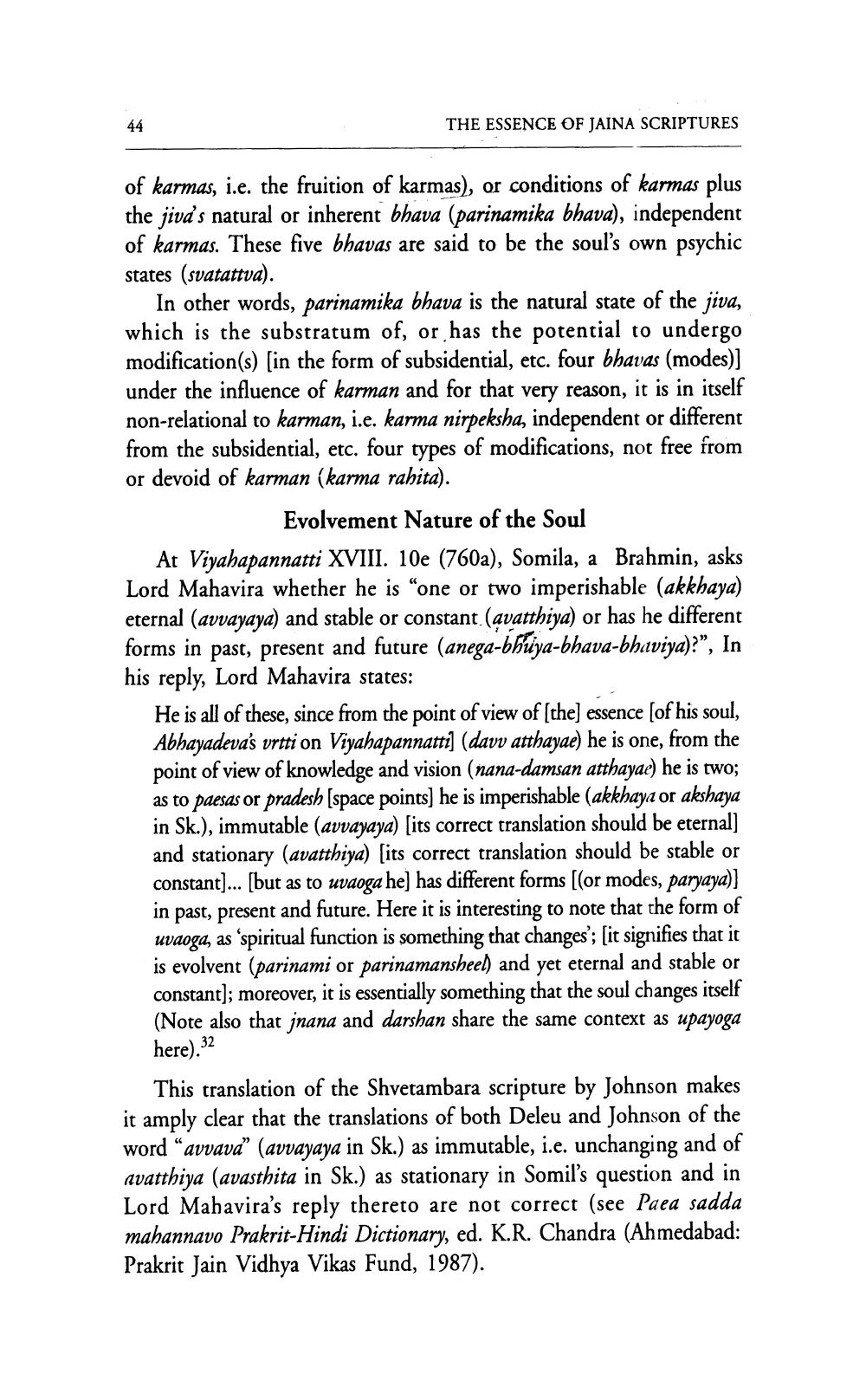________________
THE ESSENCE OF JAINA SCRIPTURES
of karmas, i.e. the fruition of karmas), or conditions of karmas plus the jiva's natural or inherent bhava (parinamika bhava), independent of karmas. These five bhavas are said to be the soul's own psychic states (svatattva).
In other words, parinamika bhava is the natural state of the jiva, which is the substratum of, or has the potential to undergo modification(s) (in the form of subsidential, etc. four bhavas (modes)] under the influence of karman and for that very reason, it is in itself non-relational to karman, i.e. karma nirpeksha, independent or different from the subsidential, etc. four types of modifications, not free from or devoid of karman (karma rahita).
Evolvement Nature of the Soul At Viyahapannatti XVIII. 10e (760a), Somila, a Brahmin, asks Lord Mahavira whether he is “one or two imperishable (akkhaya) eternal (avvayaya) and stable or constant (avatthiya) or has he different forms in past, present and future (anega-bhủya-bhava-bhaviya)?”, In his reply, Lord Mahavira states:
He is all of these, since from the point of view of [the] essence [of his soul, Abhayadeva's vrtti on Viyahapannatti] (davv atthayae) he is one, from the point of view of knowledge and vision (nana-damsan atthayae) he is two; as to paesas or pradesh (space points) he is imperishable (akkhaya or akshaya in Sk.), immutable (avvayaya) (its correct translation should be eternal] and stationary (avatthiya) (its correct translation should be stable or constant)... [but as to uvaoga he) has different forms [(or modes, paryaya)] in past, present and future. Here it is interesting to note that the form of uvaoga, as `spiritual function is something that changes”; [it signifies that it is evolvent (parinami or parinamansheel) and yet eternal and stable or constant); moreover, it is essentially something that the soul changes itself (Note also that jnana and darshan share the same context as upayoga
here). 32
This translation of the Shvetambara scripture by Johnson makes it amply clear that the translations of both Deleu and Johnson of the word “avvava” (avvayaya in Sk.) as immutable, i.e. unchanging and of avatthiya (avasthita in Sk.) as stationary in Somil's question and in Lord Mahavira's reply thereto are not correct (see Paea sadda mahannavo Prakrit-Hindi Dictionary, ed. K.R. Chandra (Ahmedabad: Prakrit Jain Vidhya Vikas Fund, 1987).




